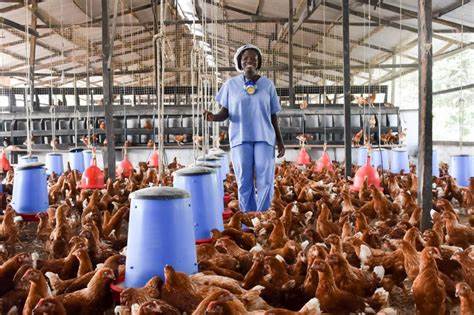The Food and Agricultural Organisation (FAO) is advising farmers to desist from using antibiotics to boost egg production.
The National Project Coordinator for Antimicrobial Resistance at FAO, Kofi Afakye, says the practice causes what is known as antimicrobial resistance (AMR), where germs become resistant to antibiotics.
He says this makes treatment of diseases difficult and costly.
“More farmers use antibiotics as prophylaxis for egg boosting and for growth promotion, which shouldn’t be the case. When they don’t make the appropriate use of these antimicrobials, there’s development of antimicrobial resistance,” he said. “When we get sick then our sickness becomes very difficult to treat”.
Antimicrobial resistance occurs when bacteria, fungi, viruses, and parasites change and become resistant to antimicrobial drugs like antibiotics to which they were originally susceptible.
Factors such as the misuse or overuse of antimicrobials in animals and humans and exposure to falsified drugs all contribute to AMR.
Withdrawal period
This is the time allowed for remnants of the antibiotics to drain out of the animal before it is consumed.
Depending on the particular antibiotics, farmers have been advised to wait for the antibiotics to drain out before selling their animals.
However, studies suggest 98 percent of farmers in Ghana are not observing the withdrawal period.
“When we give these antibiotics to these animals, we should wait for this period to elapse before we slaughter the animals for food or use the products from the animals as food,” Dr. Afakye advises.
In the situation where farmers defy this practice, there are likely traces of these antimicrobials within the animal’s system or the products.
This means that humans who consume these foods are indirectly consuming these antibiotics which can result in Antimicrobial Resistance.
Dr Afakye was speaking at a training of media practitioners on Antimicrobial resistance in Kumasi.
The workshop is part of the implementation of the National Action Plan on Antimicrobial Resistance Policy.
The FAO is collaborating with its one-health partners, to implement the National AMR Action Plan (NAP) which was launched in 2018 to fight AMR using a multi-sectoral approach.
The Ghana National Action Plan (NAP) was developed based on the model recommended in the Global Action Plan.
Collaborators have been collecting local data on on-going interventions.
The AMR policy document has been used to analyse the data.
Latest Stories
-
Traction Control: A lifesaver with an off switch? Here’s why it exists
58 seconds -
I don’t need anyman to woo me with money – Miss Malaika 2024 winner refutes pimping claims
8 mins -
”Kurt Okraku sabotaged my national team career because I refused to sign with Dreams FC” – Najeeb Yakubu
8 mins -
Businesses urged to leverage Generative AI for enhanced customer engagement
12 mins -
MultiChoice Ghana partners with Ghana Hotels Association to elevate guest entertainment
21 mins -
Bawumia’s music streaming app or Mahama’s pay-per-view TV channel?
26 mins -
Karpowership Ghana empowers 40 Takoradi Technical University students with scholarship
28 mins -
We expect significant reduction in prices of petroleum products in coming weeks – CEO AOMC
41 mins -
Betway Africa offers once-in-a-lifetime ‘Play-on-the-Pitch’ experience at Emirates Stadium
50 mins -
I coined the term ‘hype man’ in Ghana – Merqury Quaye
56 mins -
Vasseur questions ‘strange momentum’ of Formula One race director change
1 hour -
“I am disappointed in Kojo Manuel” – Merqury Quaye on “no tie” comment
1 hour -
Nana Kwame Bediako; The beacon of unity
1 hour -
Western Region: NDC youth wing embarks on phase 2 of ‘retail campaign’
2 hours -
Action Chapel International holds annual Impact Convention in November
2 hours

